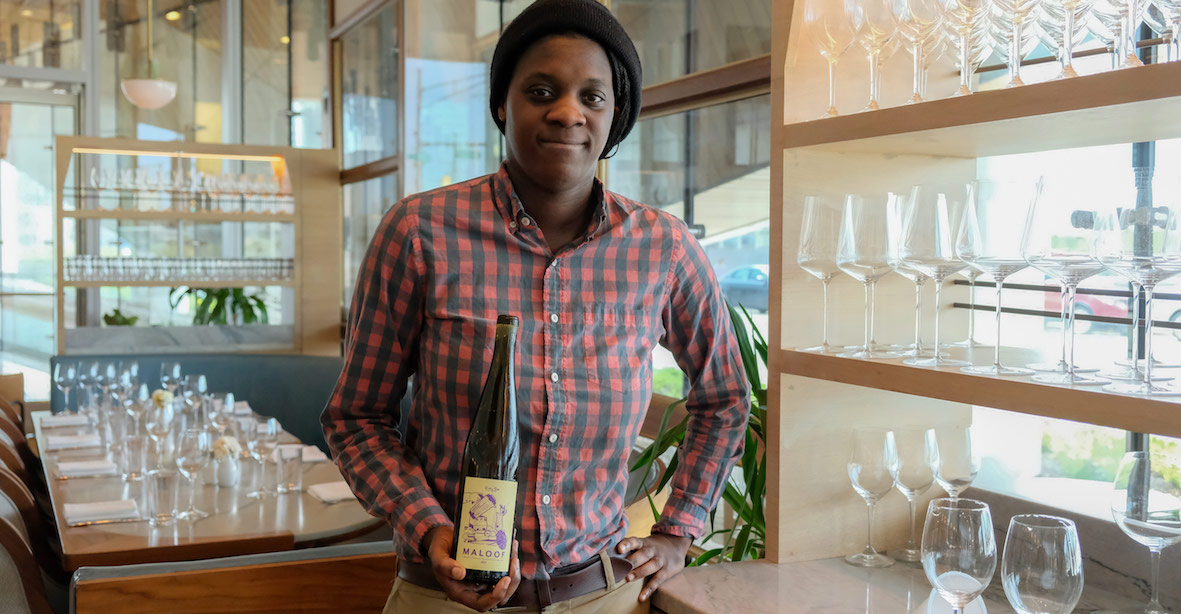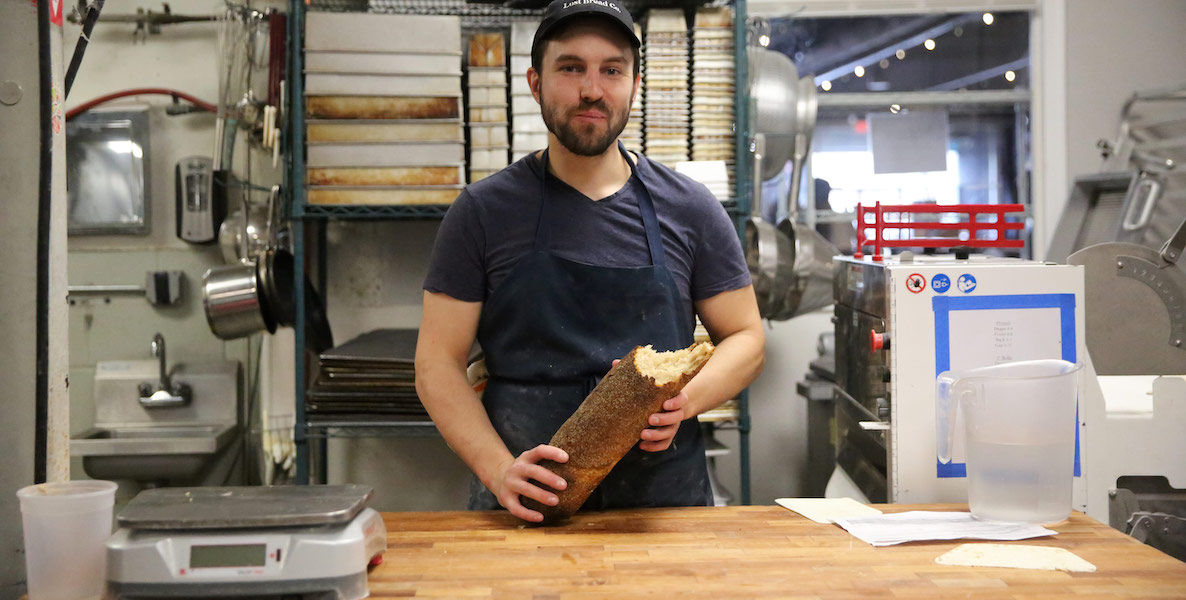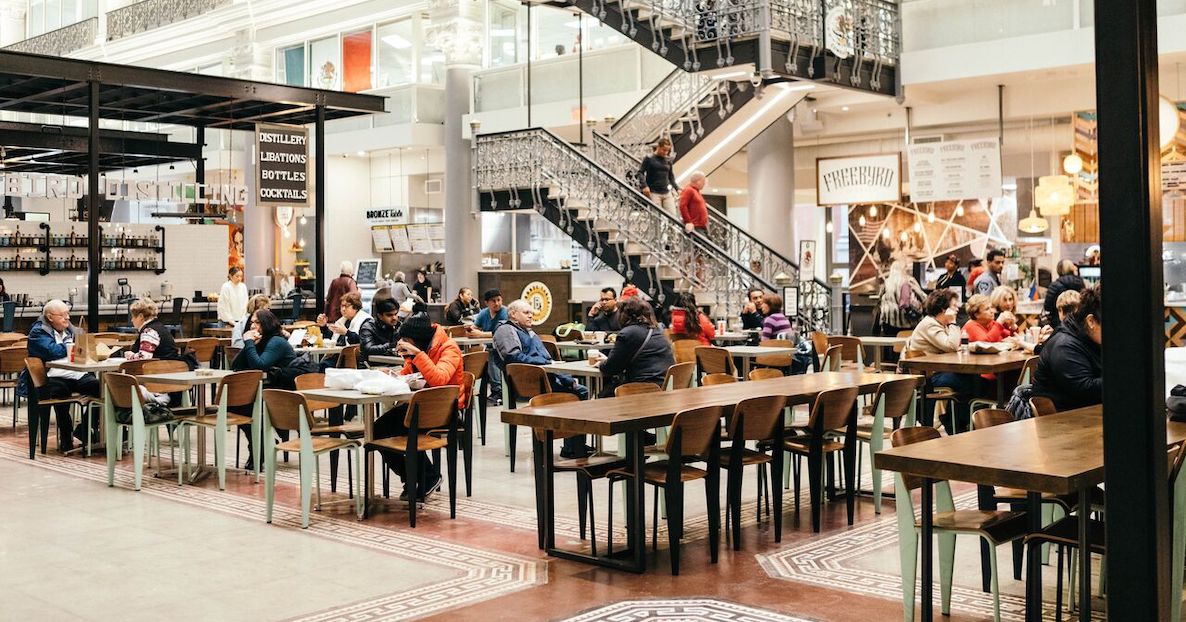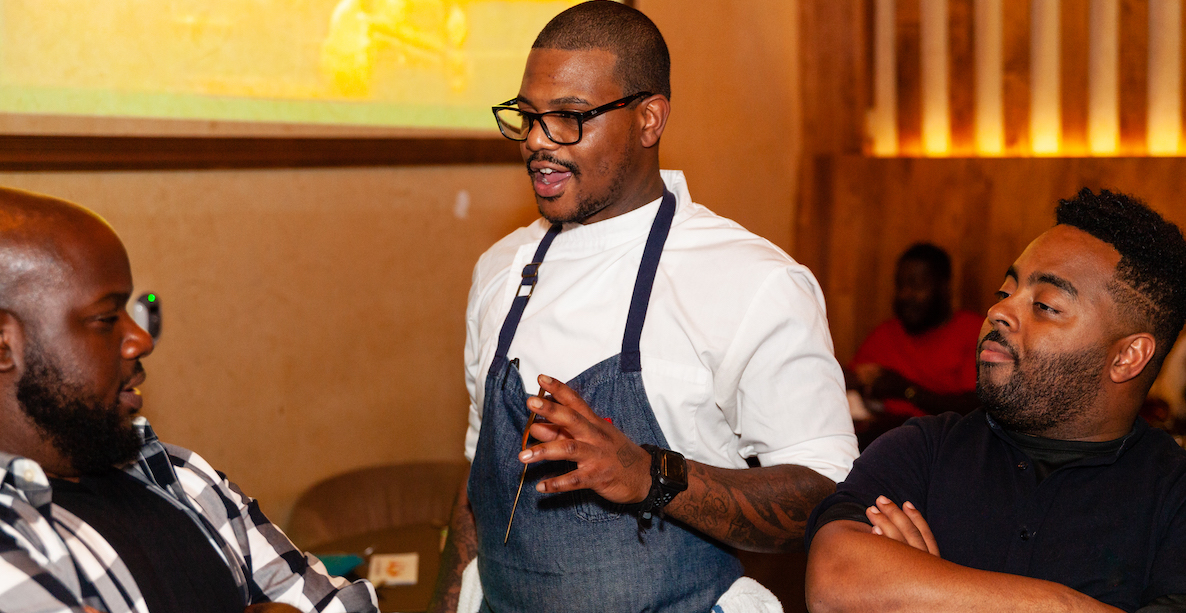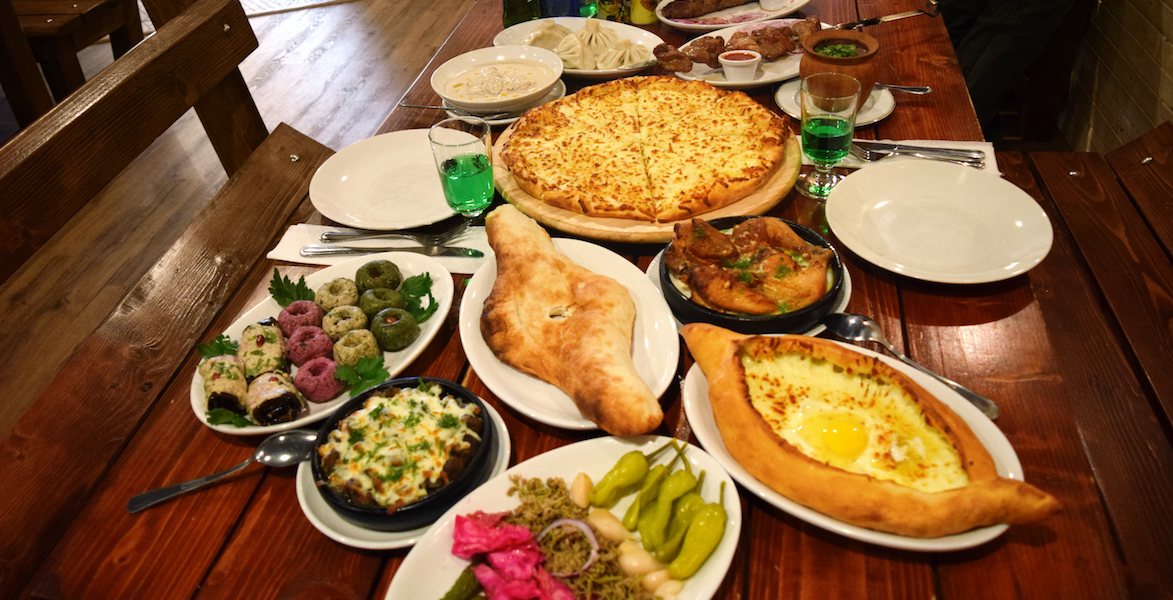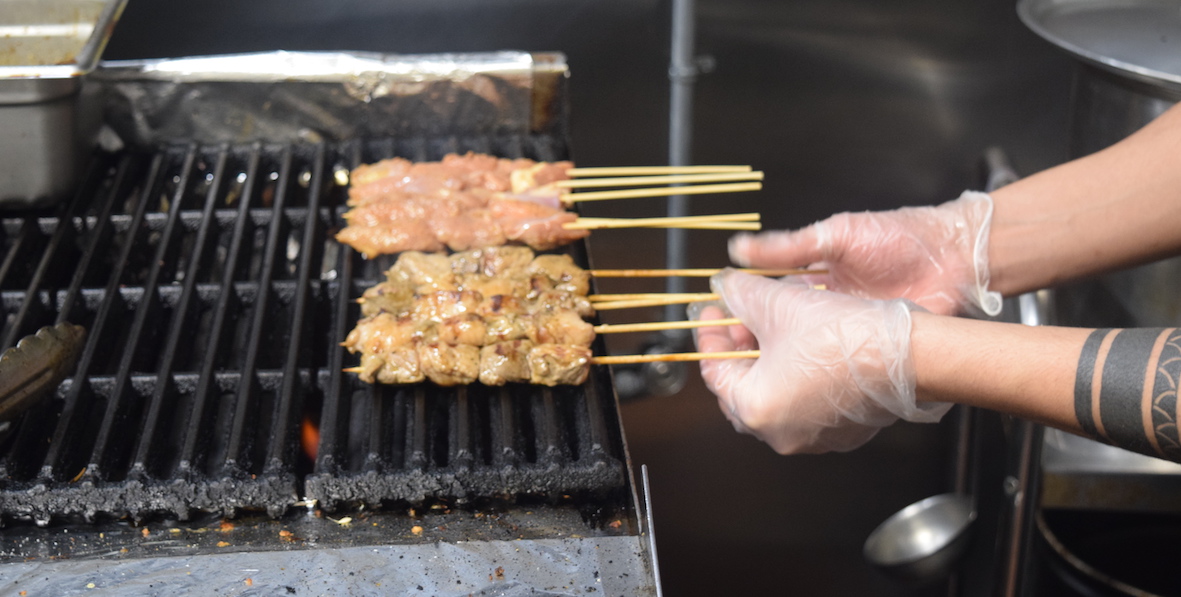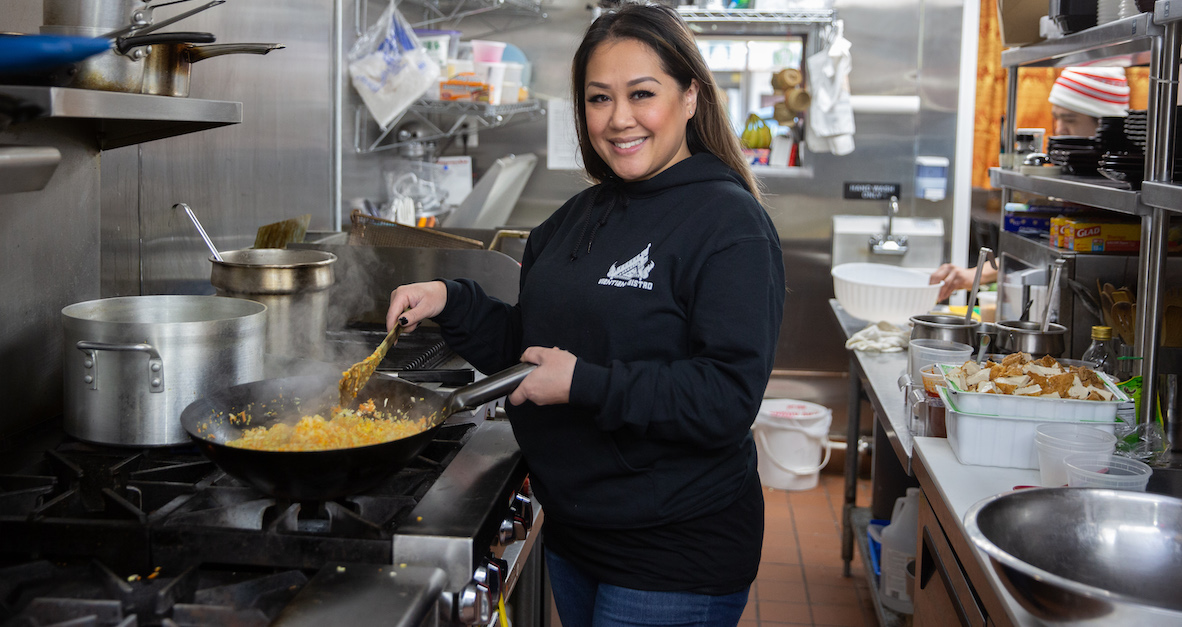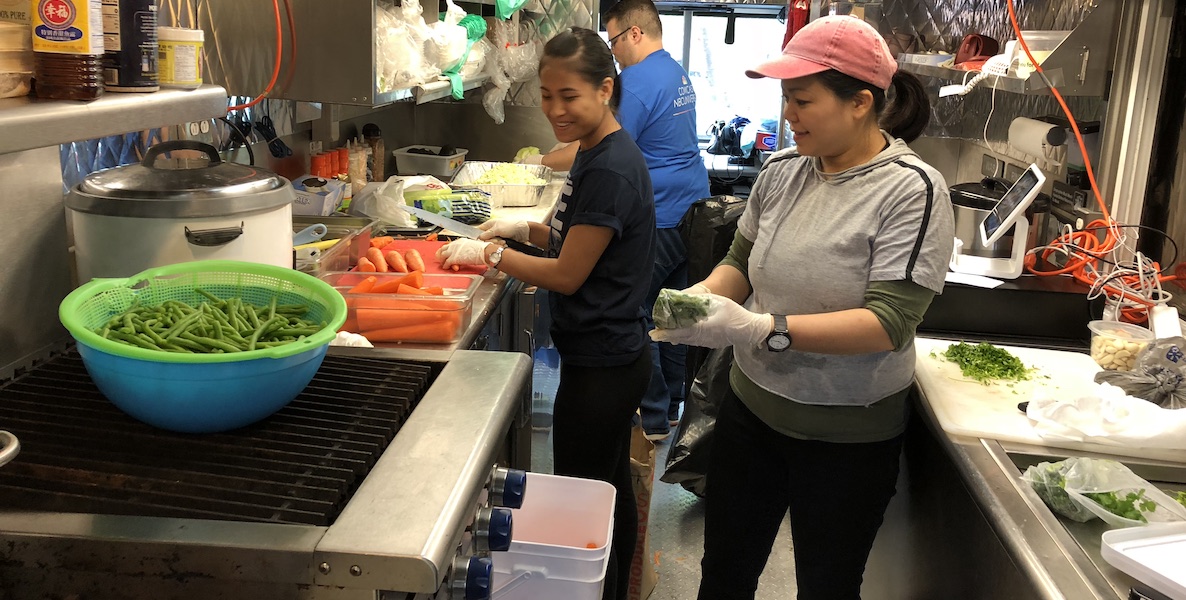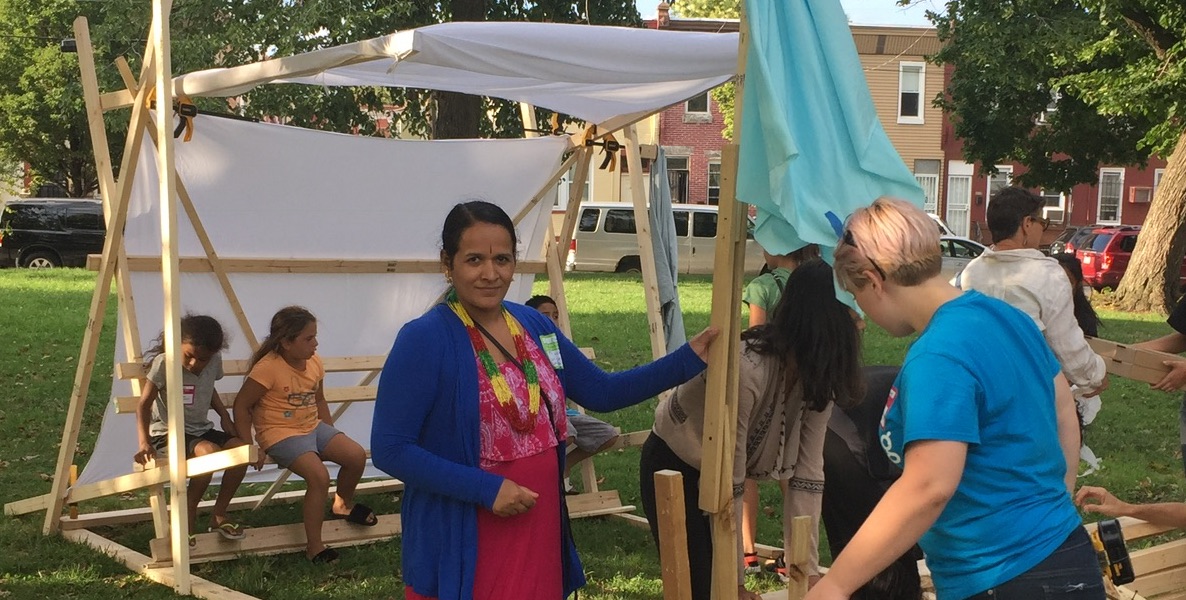Not so long ago, there was significant buzz in the city’s gastronomic circles about the neighborhood in South Philadelphia that people were calling Cambodia Town, where about half of the city’s roughly 18,000 Cambodians live, many of them arriving as refugees in the 1980s. As recently as May 2015, an article in the Inquirer’s food section defined Cambodia Town as encompassing the blocks of Sixth and Seventh Streets between Morris Street and Oregon Avenue, with Mifflin Square Park, as its beating heart.
Back then, Khmer Kitchen at Sixth and Morris was the go-to Cambodian spot, but diners looking for bowls of kuy teav, the flavors of pungent prahok, or spicy lemongrass-tinged stir fry could choose from bustling restaurants like Heng Seng, New Phnom Penh, Khmer Sweet Basil, or I Heart Cambodia. During warm weather, you could even buy sizzling skewers, sticky rice, and papaya salad from up to a dozen women with charcoal grills on the sidewalks near Mifflin Square Park. At the time, there was excitement over the possibility of the city officially naming the area Cambodia Town, and even possibly setting up a Business Improvement District, backed by the local councilperson.
“We ran into a buzz saw,” says Andy Toy of SEAAMAC. “Some members of the community felt they weren’t included. Cambodia Town is not going to happen.”
But then a couple things happened. The first, in October 2015, was an outbreak of gun violence in Mifflin Square Park, with more than a hundred shots fired over two nights—a conflict between rival Southeast Asian and African-American gangs—leaving one person dead. After looking the other way for years, police quickly shut down the park’s unlicensed food vendors, ie. those Cambodian grandmas selling skewers from their grills. Police claimed that vendors led to a lawless situation that resulted in gambling and illegal alcohol sales. “A police cruiser sat in the center of the park for like a year,” Thoai Nguyen, who runs the neighborhood nonprofit group Southeast Asian Mutual Assistance Association Coalition (SEAMAAC) told the Inquirer in 2017. That move dampened the park’s lively food atmosphere.
![]()
Another, separate blow to the Cambodian food scene happened last spring, when Khmer Kitchen closed its doors. “This one’s a heartbreaker,” wrote Philly Magazine’s Alex Tewfik.
Over the past three years, SEAMAAC has taken the lead in redesigning and rebuilding Miffin Square Park, bringing in backing from the William Penn Foundation and Knight Foundation, among others. Yet they experienced serious community resistance to the idea of renaming the area Cambodia Town, particularly among African-American residents who’d lived there for decades.
Naming evolving neighborhoods can be a fraught endeavor. Just look at what happened a few years ago in nearby Point Breeze, for example, before the Newbold Neighbors Association decided to drop the name “Newbold” and use East Point Breeze instead, or what happened in Norris Square in 2017, when a developer tried to rebrand it “Stonewall Heights”. It signals, more than anything else, a brand of gentrification that pits old against new residents in a cultural disconnect that can divide a community. On Seventh Street, the people involved were different—immigrants, mostly, not middle class white residents—but the effect was the same.
![]()
“We ran into a buzz saw,” says Andy Toy, SEAMAAC’s development and communications manager. “Some members of the community felt they weren’t included. It got really heated. Cambodia Town is not going to happen, and we didn’t necessarily think that it was a good idea.”
The pushback makes sense with a deeper look at the extremely diverse demographics around Mifflin Square: the area is a third white, a third African American and Latino, and a third Asian. Even among the Asian population, there is incredible diversity. Besides Cambodian, Vietnamese, and Lao, there are also sizable populations of Burmese, Bhutanese, and Indonesians. The largest population, in fact, is Chinese. Historically, the neighborhood was Jewish, but now there are more than 20 languages spoken here, and more than a quarter of the residents are foreign born. This level of diversity is rare in Philadelphia, which is historically one of the most segregated cities in America.
I know we’re not calling it Cambodia Town anymore. But the sublime Cambodian food is still the neighborhood’s biggest draw.
I experienced this as I was eating around the neighborhood. At the corner of Seventh and Jackson, I ate delicious pupusas, crispy fried Honduran-style tacos, and big bean-and-cotija-cheese-filled baleadas at El Sabor Catracho. I followed that with a Vietnamese coffee and sweet rice wrapped in a banana leaf from Café Vinh Long just up Seventh. Then I walked down Wolf Street, past the beautiful, shining orange-and-gold Buddhist temple, to Mifflin Square Park. There, at the kickoff celebration of the park’s Vendor Village, I ate rich and flavorful Indonesian beef rendang and chicken sate served by Chef Yeni from the SoPHiE food truck.
SEAMAAC’s strategy for Mifflin Square Park now focuses on how to unite such diversity. Its website that details the redesign plan is translated into nine languages.
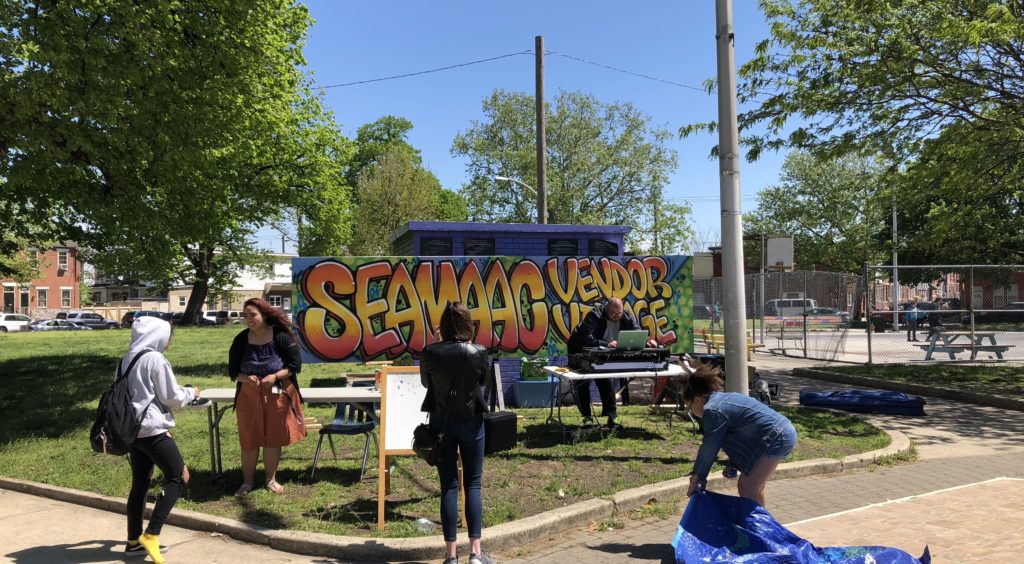
One of the first initiatives was creating Vendor Village with a $175,000 grant from the Knight Foundation. “Let’s try to bring back vendors where someone can do it the right way,” Toy says. SEAMAAC launched its SoPHiE food truck last year to recapture some of the vibrancy that had been lost in the crackdown on the neighborhood’s original Cambodian street vendors. “We’re using the food truck as a way to engage the community,” Toy says. Now, a rotating roster of immigrant chefs operate the SoPHiE food truck, which SEAMAAC offers as a symbol of entrepreneurship for the community. So far, the SoPHiE truck is Vendor Village’s only vendor, but SEAMAAC hopes that it will attract more legal food vendors in the future. (SoPHiE stands for “South Philly East,” which has been SEAMAAC’s working name for the nameless neighborhood now that Cambodia Town is off the table.)
![]()
On another recent Saturday, as dozens of volunteers wearing blue Comcast Cares t-shirts—along with the Phillies Phanatic—cleaned up the park and planted flowers, I spent some time inside the SoPHiE food truck with Burmese chef Zarzo Lian as she prepped her specialities, including her Myanmar-style green beans tossed with cilantro, scallions, fried garlic, peanuts, sesame, and fish sauce. “I love this neighborhood,” Lian said as she fried lemongrass-and-pepper chicken and spring rolls. “We see all different kinds of people.”
![]()
Lian came to the U.S. as a refugee in 2000, living briefly in Washington, D.C., and then in Edison, New Jersey, where she worked as a sushi chef. She moved to Philadelphia in 2010 and spent several years working in immigrant outreach at both the Nationalities Service Center and at SEAMAAC. She estimates there are about 2,000 Burmese refugees living in the city. “I want to create jobs for refugee women who might not be able to speak English or drive a car,” she said.
The SoPHiE food truck helped her change careers. “I’ve really loved this experience,” Lian said. “Now we know how to run a business.” In fact, after her first summer of working in the food truck, she now owns a franchise of Hissho Sushi.
SEAMAAC’s strategy for Mifflin Square Park now focuses on how to unite the diversity. The website detailing its plan is translated into nine languages.
SoPHiE aside, the idea of Cambodia Town has not been totally obliterated. More than anywhere else, this is still the best neighborhood for amazing Cambodian food. My favorite food truck is Boba & Company, which operates most of the time a block from Mifflin Square Park at Sixth and West Moyamensing. Boba & Company is famous for its bubble teas and exotic fruit drinks (including one with the distinctly odorous durian fruit), its “Cambo corn” doused in coconut milk, and its amazing “Golden Phoenix”—spicy ginger-and-lemongrass chicken wings stuffed with minced pork sausage, noodles, and mushrooms. And frankly, I enjoy the underground vendors who still pop their charcoal grills out onto the sidewalk and fill the air with the smells of spicy meats on a sunny afternoon.
Along Seventh Street, the long-time Cambodian spots like New Phnom Penh serve great deep-fried spring rolls, thick pan-fried noodles with pork (way better than your Thai takeout pad see ew), and rich, brothy, beefy kuy teav or Phnom Penh noodle soup (often on the menu in its Vietnamese spelling hu tieu nam vang), which is similar to pho but with thinner noodles, a complex pork base, and usually eaten for breakfast. Even some of the family members from Khmer Kitchen have opened a new place called called Sophie’s Kitchen further north at 5th Street and Washington Avenue.
My favorite Cambodian restaurant, however, remains I Heart Cambodia, which opened in early 2015—right before the troubles in Mifflin Square Park. The swirl of flavors at I Heart Cambodia can be disorienting and edgy but so satisfying and soulful, particularly the fried quail, the sadao, the bitter flower salad with shredded pork and shrimp and of course the prahok (spelled brahok on their menu). I Heart Cambodia’s brahok ktis is rich ground pork swimming in an unctuous sauce of chile paste, lemongrass, kaffir leaves, and fermented fish sauce, balanced by coconut milk. Served with crudité platter of carrots, cucumbers, and eggplants, this is the most unique, amazing vegetable dip you’ll taste.
I know we’re not calling it Cambodia Town anymore. But the sublime Cambodian food is still the neighborhood’s biggest draw.
Jason Wilson is The Citizen’s 2019 Jeremy Nowak Fellow, funded by Spring Point Partners, in honor of our late chairman Jeremy Nowak. He is the author of three books, including most recently Godforsaken Grapes, series editor of The Best American Travel Writing, and writes for the Washington Post, New York Times, New Yorker and many other publications.



